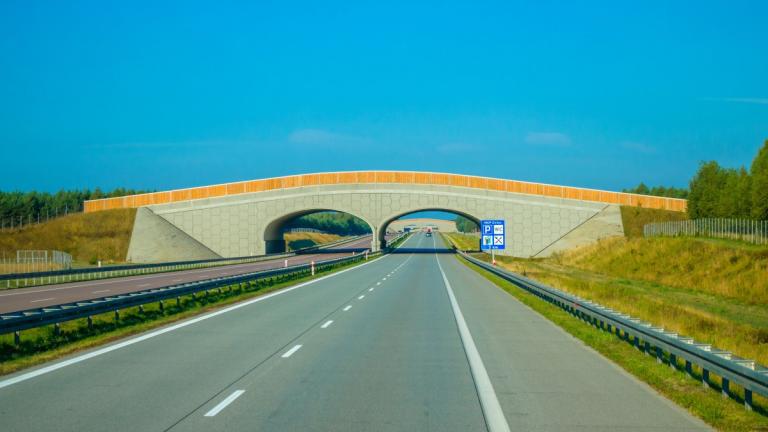
What would happen if a fossil fuel company actually did something right for the environment?
Enter Total S.A., in cooperation with Wavin B.V. and two brilliant Dutch inventors (Anne Koudstaal and Dr. Simon Jorritsma) of VolkerWessels subsidiary KWS Nederland. Together, the group has introduced a novel solution to plastic waste - build modular highways out of it. They call the project "PlasticRoad" and here is the basic idea (as described by KWS)...
"PlasticRoad's concept is in line with developments such as... The Ocean Cleanup: the initiative to free the seas of 'plastic soup' [see my earlier ClimateX post on this]. Recycled plastic is made into prefabricated road parts.... The prefabricated production and the lightweight design also make the construction of a PlasticRoad into a much simpler task. Roads can be built in weeks instead of months. It is also much easier to control the quality of the road (stiffness, water drainage etc.)."
The concept appears to be a major improvement in design and safety from conventional asphalt systems. The prefabricated sections of recycled plastic highway are designed with hollow channels. Thiese channels make the roadway amenable to installing underground pipes and cables, and provides the means for drainage to prevent flooding of the road surface during rain storms. The concept appears very clever and functional. The real magic seems to come in the longevity of the finished product compared to common fossil-fuel-based asphalting...
"PlasticRoad is a virtually maintenance free [and is] unaffected by corrosion and the weather. The road structure handles temperatures as low as -40 degrees and as high as 80 degrees Celsius with ease. It is also much more resistant to chemical corrosion. Estimations predict that the lifespan of roads will be tripled."
In a 2015 story on the technology, The Guardian reported that asphalting typically releases about 1.6 million tons of CO₂ annually into the atmosphere. This PlasticRoad technology would put a serious dent in that number, and reduce the demand for dirty bituminous pitch from crude oil. Now that's unexpected... a supermajor oil company actually advocating a technology that will reduce demand for crude oil and help rid the oceans of plastic debris.
Perhaps, a ray of climate action hope for us all.
For more on this concept, see the Tech Insider story: A Dutch city has come up with a genius plan that could eventually eliminate asphalt roads.





